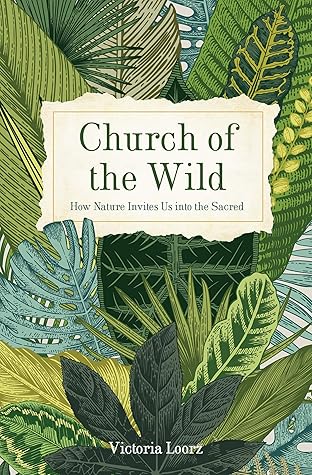More on this book
Community
Kindle Notes & Highlights
Started reading
September 9, 2024
them. The layers of crises and cruelty we face will not be solved with technological, political, or economic strategies alone. A deeper transformation of heart is necessary to welcome in a new story. Moving away from a worldview and a way of life that treats others as a “collection of objects” toward a new way of being human that participates honorably in a vast “communion of subjects” is what Thomas Berry calls “the Great Work.”4 The Great Work is spiritual at the core. Gus Speth, an environmental attorney, ecologist, and climate advocate, has summarized the problem brilliantly: “I used to
...more
~☆~Autumn and 2 other people liked this
The layers of crises and cruelty we face will not be solved with technological, political, or economic strategies alone. A deeper transformation of heart is necessary to welcome in a new story. Moving away from a worldview and a way of life that treats others as a “collection of objects” toward a new way of being human that participates honorably in a vast “communion of subjects” is what Thomas
(Job 12:7, for example: “but ask the animals, and they will teach you; / or speak to the land, and it will inform you”6)
Hildegard of Bingen,
Those of us called to the ecotoned edges need one another. Kurt Vonnegut calls this kind of connection a karass, a word he made up that means “a network or group of people who are somehow affiliated or linked spiritually.”12
The more diverse our relationships are, the more resiliently we can hold our own individual edges.
Every religion has an edge where the mystics live.
There have always been edge walkers: those who didn’t follow along with the status quo, who didn’t swallow the version of religion offered by those on top of the hierarchy as The Only Way.
White cited the “Christian axiom that nature has no reason for existence save to serve man,” as the primary force that continues to define our political, economic, and even ecclesial beliefs and practices.15 It was an awakening for me to see that Christianity not only has resisted engagement on environmental issues for political and otherwise confusing reasons but has also been responsible for much of the worldview of hierarchy and separation itself.
The very real, concrete changes our world desperately needs, but desperately resists, will not happen without a compassionate and intimate reconnection with nature. What we need can’t be legislated or explained or resolved through a great social media campaign. What is needed is something that is deeply seeded at the core of every religion: love.
Restoring relationship is, I believe, the true mission of religion. The word religion, at its roots, means re, “again,” and ligios, “connection,” like ligaments. Religion is meant to offer us support to connect again what has been separated. Apparently we need constant reminders to continually reconnect with the fullness of life, the whole, the holy. What we’ve created is more like disligion: disconnection from people and species unlike us. When religion loses its purpose and colludes with the forces of separation instead, it becomes irrelevant and even irreverent.
As simplistic as it sounds, I believe that only love is strong enough to bring about the change we need.
And yet the preposterous transformative power of love at the core of nearly every religion, including my own, may just be the only way through.
Turns out they were all mystics. To Saint Therese of Lisieux, the “Little Flower”; Brother Lawrence, a cook in a monastery who could practice the presence of God while washing dishes; and the anonymous author of the mystical Cloud of Unknowing, written in the 1300s. The first Christian book I read was Dark Night of the Soul by Saint John of the Cross. It went straight over my head, but my heart felt at home.


